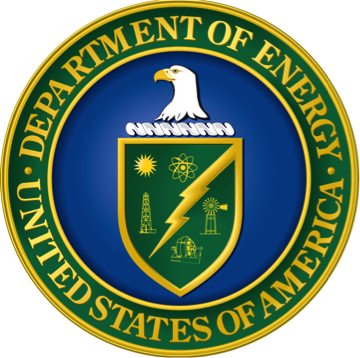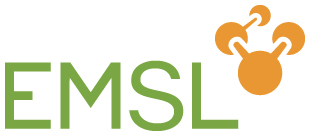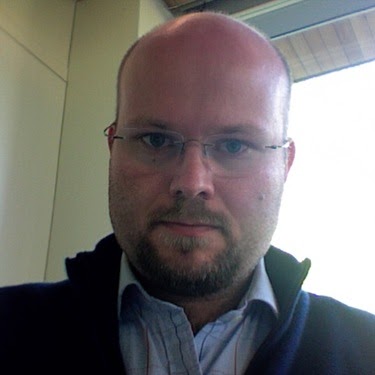
Nico Adams, CSIRO
Nico Adams is a Senior Research Scientist at the Commonwealth Scientific And Industrial Research Organisation (CSIRO), Australia's National Laboratory, where he leads some of the materials and manufacturing informatics efforts in the division of Materials Science and Engineering.
Nico read chemistry at the University of York (UK) and subsequently worked as a research chemist, first at DSM Research (NL) and later at Cambridge Combinatorial (now Millenium Pharmaceuticals) in the area of high throughput synthesis and screening of olefin polymerization catalysts.
In October 1999 he joined the Inorganic Chemistry Laboratory at the University of Oxford as a doctoral student and the group of Prof U. Schubert at the Eindhoven University of Technology/Dutch Polymer Institute as a Research Associate and project leader in materials informatics.
This was followed by a further appointment at the Unilever Centre for Molecular Science Informatics, University of Cambridge in the research group of Prof Peter Murray‐Rust. During this period, he helped to develop Polymer Markup Language - an extension of Chemical Markup Language (CML) to describe polymers and associated data, as well as beginning the development of ChemAxiom - an ontological framework for chemistry.
This was followed by brief period at the Department of Genetics (University of Cambridge) and as a visitor at the European Bioinformatics Institute (EBI, Cambridge) where he worked on the ChEBI ontology and developed the Primary Immunodeficiency Disease Ontology before finally joining CSIRO in 2011.
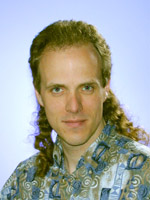
Dave Cowley, PNNL
Cowley's primary research interests are in unique problems associated with architecting,
engineering, and administering large scalable computer and data storage systems. He is the lead
for EMSL's Molecular Science Computing capability. Primarily, he provides terascale
supercomputing and petascale data storage services for EMSL users. His operations team performs
engineering, as well as implementation and operations of high-end computing hardware, operating
systems, and software.
Since joining PNNL, Cowley has been managing large computer systems to support PNNL business and
research. Since the early 1990s, he has been at the forefront of PNNL's UNIX and Linux system
administration, instituting many practices that remain in use today.
When he took responsibility for a 128-node IBM SP/2 supercomputer in the late 1990s, Cowley made the
transition from business-oriented database server administration to high-performance technical
computing. Following that success, he joined EMSL in 2001, where his technical work has focused on
large-capacity commodity storage. He is the architect of three generations of the EMSL data archive.
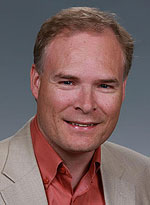
Bert de Jong, PNNL
Bert leads the team at PNNL responsible for the development of the NWChem quantum chemistry
software. NWChem is the leading one-of-a-kind open-source computational chemistry software
capability within the DOE complex that delivers a massively parallel and scalable simulation
toolkit on EMSL's Chinook supercomputer with unique capabilities that fully integrate with the
experimental capability suite at EMSL. The software is available to the community under the
open-source Educational Community License 2.0 (ECL 2.0). The open-source web pages can be found
at http://www.nwchem-sw.org.
One of Bert's interests is the integration of experiment and simulation. He is working on the
development of a semantically enriched NWChem software suite based on the Chemical Markup Language and
the FoX XML writer library. Bert is using prototypes to integrate data from relativistic computational
chemistry NMR simulations with experimental data to understand the fundamental bonding properties of
heavy element species and materials.
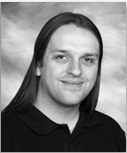
Marcus Hanwell, Kitware Inc.
Marcus D. Hanwell is a Technical Leader in the Scientific Computing
group at Kitware, Inc. He leads the Open Chemistry project
(http://openchemistry.org/), which focuses on developing open-source
tools to for chemistry, bioinformatics, and materials science
research. He completed an experimental PhD in Physics at the
University of Sheffield, a Google Summer of Code developing Avogadro
and Kalzium, and a postdoctoral fellowship combining experimental and
computational
chemistry at the University of Pittsburgh before moving to Kitware,
Inc. in late 2009. He is a member of the Blue Obelisk, blogs, is
@mhanwell on Twitter, and is active on Google+. He is passionate about
open science, open source and making sense of increasingly large
scientific data to understand the world around us.
He has played a key role in developing new development workflows as
Kitware's open source projects moved to Git, working on Gerrit code
review integration, running CDash@Home cloud-based testing with Gerrit
code review and next generation build systems in the Titan, ITK, and
VTK projects. He has also been awarded and led a Phase I and Phase II
SBIR project to further develop open-source chemistry tools for
computational chemistry, and has taken part in international
collaborations to establish open standards for data exchange in
chemistry.
Additionally, Marcus has been an active member of several open-source
communities. He is one of the core developers of Avogadro, an
open-source, 3D, cross-platform molecular visualization and editing
application/library. He has been an active member of the Gentoo and
KDE communities, and is a member of the KDE e.V. His work in Avogadro
was featured by Trolltech on their "Qt in Use" pages, and he was
selected as a Qt Ambassador. He won a Blue Obelisk award for his work
in open chemistry, and continues to develop and promote open
approaches in chemistry and related fields.
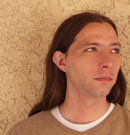
Christopher Jordan, Texas Advanced Computing Center (TACC)
Chris Jordan joined TACC in April 2008 to work on a variety of issues related to storage and I/O for
high-performance computing, as well as long-term digital preservation issues. He currently leads the Data
Management and Collections group, and is responsible for deploying research data infrastructure to serve the
University of Texas System campuses and the national community. He has led data infrastructure activities for
the National Science Foundation's TeraGrid and XSEDE projects. Before joining TACC, Chris spent four years at
the San Diego Supercomputer Center, where he helped develop and deploy the GPFS-WAN global file system currently
in production across multiple TeraGrid resource providers. He and his collaborators have published and spoken
widely about the project. Chris has nearly ten years of experience working directly with some of the largest
supercomputers and storage systems in the world, and has worked with a variety of architectures and scientific
applications. His research interests include high performance, parallel I/O, digital preservation, scientific
visualization and image rendering and non-traditional applications of high-performance computing.
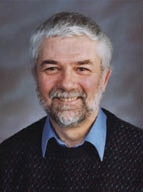
Peter Murray-Rust, Cambridge
Peter Murray-Rust is now Reader in Molecular Informatics at the University of
Cambridge and Senior Research Fellow of Churchill College.
His research in molecular informatics brings tools from computer science to chemistry, biosciences and
earth sciences, integrating humans and machines in managing information. His research interests have
involved the automated analysis of data in scientific publications, creation of virtual communities e.g.
The Virtual School of Natural Sciences in the Globewide Network Academy and the Semantic Web. With Henry
Rzepa he has extended this to chemistry through the development of Markup languages, especially Chemical
Markup Language (CML), an expanding XML representation of molecular science including molecules,
spectra, reactions, computational chemistry and solid state.
He campaigns for Open Data, particularly in science, and is on the advisory board of the Open Knowledge
Foundation and a co-author of the Panton Principles for Open scientific data. Together with a few other
chemists he was a founder member of the Blue Obelisk movement in 2005.
In 2002, Peter Murray-Rust and his colleagues proposed an electronic repository for unpublished chemical
data called the World Wide Molecular Matrix (WWMM).
In 2011 he and Henry Rzepa were joint recipients of the Herman Skolnik Award of the American Chemical
Society.
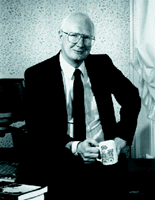
Neil Ostlund, Hypercube Inc.
In 1969, Ostlund received his Ph.D. degree from Carnegie Mellon University. As a professor of theoretical chemistry at the University of Arkansas, Ostlund took a sabbatical at Carnegie Mellon's computer science department and stayed for three years. In 1982, Ostlund then moved to the University of Waterloo, but as a professor of computer science, and the director of the computer architecture lab.
Ostlund started a molecular modeling company, Hypercube, in 1985 and eased out of his second tenured position by 1988. He says the move brought his career back into chemistry. "In computer science, I had to hide that I knew any chemistry," he says.
Ostlund now hires Ph.D. chemists "who pride themselves on becoming software engineers." Some of his employees have used his company as a transition out of chemistry into "pure" software careers. "They learn a lot of things training to the level of the Ph.D.: how to write, how to organize, how to be meticulous. It carries over to other professions." But in seeking capital for his business, the Ph.D. was not such an asset, he says. "If you're a chemist, you might have trouble convincing people that you are also a businessperson."
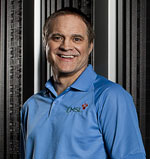
William Shelton, PNNL
Dr. William A. Shelton is the Associate Director of EMSL-the Environmental Molecular Sciences Laboratory. His
primary responsibility is to lead the molecular sciences computing at EMSL in achieving its vision of
integrating its full range of capabilities with computation including both numerical and data intensive
computing. This will enable EMSL to reach its goal of being a premier scientific user facility for the
Department of Energy by ensuring that EMSL develops and provides transformational computational and experimental
resources along with recognized teams of researchers to provide a high level of expertise and collaboration to
the scientific user community and conducts research that is focused on critical scientific issues.

